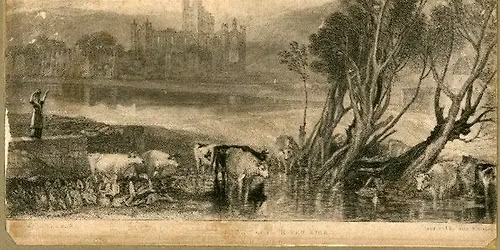Polycrisis Network Seminar Series: Aflatoxin’s Cartographies
Schedule
Tue Oct 14 2025 at 12:00 pm to 01:00 pm
UTC+01:00Location
Hybrid: Baines Wing SR (1.13) or MS Teams | Leeds, EN

About this Event
Aflatoxin’s Cartographies: The politics of uncertainty, extraction, and carcinogenic exposure in Senegal
Join us to hear from Noémi Tousignant an Honorary Research Fellow at UCL who will be presenting this seminar in person.
This seminar takes up the following questions: For whom was aflatoxin (in Senegalese peanuts) carcinogenic and worth knowing as such? It examines how, in the 1960s through the 1980s, colonial infrastructural and ecological legacies obstructed the knowability and controllability of aflatoxin as a carcinogen for Senegalese bodies. During these decades, research on or even talk about aflatoxin as a potential cause of Senegal’s high rates of liver cancer were seen as a threat to Senegal’s postcolonial economy, and thus actively suppressed by political and medical authorities. In parallel, the announcement, then application, of European aflatoxin standards prompted the setting-up of a system of regulatory practices that enacted aflatoxin as carcinogenic (mainly) for Europeans, and regulatory standards as a trade barrier for Senegalese peanuts. The talk explores how Senegal’s peanut trade was configured in the first half of the twentieth century to generate profit through mass smallholder production, minimal state or capital (re)investment, and unequal terms of exchange, including of ecological “capital” and harm. This cemented conditions that were, even after independence, ill-suited to practices of care for Senegalese soils, plants, and eaters that might mitigate aflatoxin’s formation and consumption. Aflatoxin was instead controlled at the border to meet export standards, leaving local exposures unmonitored and uncertain. The talk suggests that aflatoxin exposure in Senegal has been amplified at multiple points of uncertainty, extraction, and abandonment, discussing the relevance of the concept of polycrisis for writing its history.
About the speaker: Noémi Tousignant is currently research coordinator at the University of Montreal Hospital Centre and an honorary research fellow in the Department of Science and Technology Studies at UCL. She is the author of Edges of Exposure (Duke 2018), a historical ethnography of Senegalese toxicology which was awarded the Society for Social Studies of Science Ludwik Fleck Award for 2020. She also co-edited Traces of the Future(Intellect 2016), on the traces and remains of medical science in Africa, as well as special issues on the materiality, temporalities and ethos of health and scientific work in Science as Culture, Africa and the Canadian Journal of African Studies. Other articles in Social History of Medicine, Comparative Studies in Society and History and Social Studies of Science focus on pharmaceuticals, laboratories and medicinal plant research in Africa.
This is a hybrid event, once registered you will be sent a meeting appointment with details for in-person attendance (on the University of Leeds campus) and the online joining link.
Find out more about the Polycrisis Network at the University of Leeds.
Where is it happening?
Hybrid: Baines Wing SR (1.13) or MS Teams, University of Leeds, Leeds, United KingdomEvent Location & Nearby Stays:
USD 0.00










